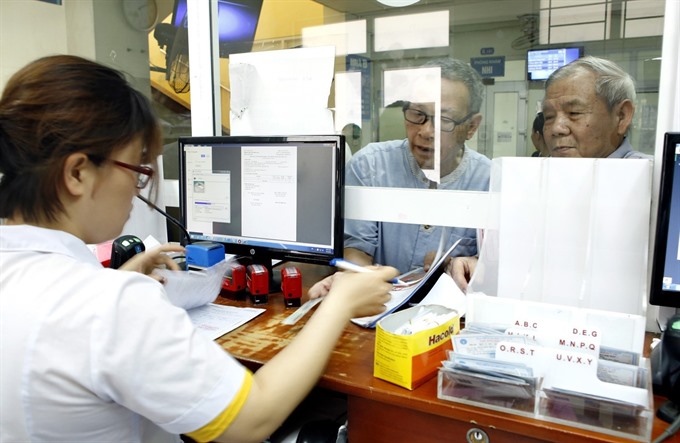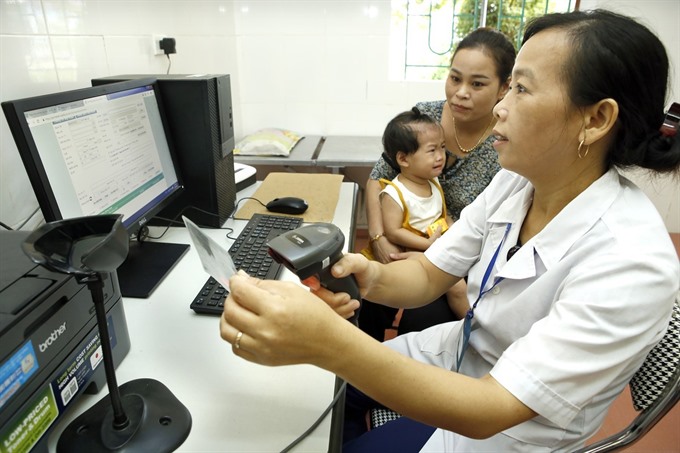 Society
Society

Keeping medical records in an electronic database brings benefits to citizens and healthcare facilities, experts have concluded thanks to a pilot project launched in June.
 |
| A medical staff member at the Đống Đa General Hospital in Hà Nội inputs patients’ information on a computer. — VNA/VNS Photo Dương Ngọc |
HÀ NỘI — Keeping medical records in an electronic database brings benefits to citizens and healthcare facilities, experts have concluded thanks to a pilot project launched in June.
The pilot by the Ministry of Health (MoH) introduced software to compile citizens’ medical records in one electronic database in eight cities and provinces in June. Participating localities are Hà Nội and
People who keep their medical records in the database said they were satisfied with the convenience of the system.
Nguyễn Văn Thành from Hà Nội’s inner district of Ba Đình said he no longer had to carry all of his child’s written medical records every time he took him to a hospital.
“Now at every hospital we go to, the doctors have already known about his conditions,” he told Hải Quan (Customs) newspaper.
“If the database is used in the whole medical sector nationwide, it will take the burden off our shoulders.”
In addition to keeping patients’ information—including blood type, diseases and allergies—the database also helps synchronise all this information between healthcare facilities at different levels (communal, district, provincial and central), making it easier for citizens to get health checkups everywhere they want.
Đào Ngọc Mai from Hà Nội’s outer district of Gia Lâm said: “Previously, we farmers only went to hospitals when we got really sick. But the convenience of the database encouraged us to get regular checkups and helped us keep track with our health conditions.”
But some people are worried that health centres in their areas are not equipped with proper facilities to implement the system.
 |
| Most residents in the Hộ Độ Commune, Lộc Hà District of Hà Tĩnh Province have already had their electronic medical records set up. — VNA/VNS Photo Dương Ngọc |
In order to expand the system nationwide in July next year in accordance with the MoH’s plan, Nguyễn Khắc Hiền, director of Hà Nội’s Department of Health said more equipment and trained staff would be provided to wards and communes within the city.
“All medical centres will have internet connections and use the same software to access the database,” he said.
“Each citizen will get their own code, and their information will get updated into the system from any healthcare facility they go to,” he added.
“We will also collaborate with schools and State-owned agencies to get medical information of students and civil servants.”
Lê Trường Giang, president of the HCM City Public Health Association, said that health centres in the city should increase collaboration and exchange information since most of them are using different software programs to keep citizens’ medical records.
“They should also pay close attention to ensuring information security,” he said.
"Electronic medical records and social security numbers are among the essential tools that will help to simplify medical procedures for citizens," said Nguyễn Trọng Khoa, deputy director of the MoH’s Department of Medical Examination Management.
“With these tools, doctors can easily get hold of their patients’ health conditions and patients will not be required to take unnecessary tests, especially during emergencies,” he said. — VNS




